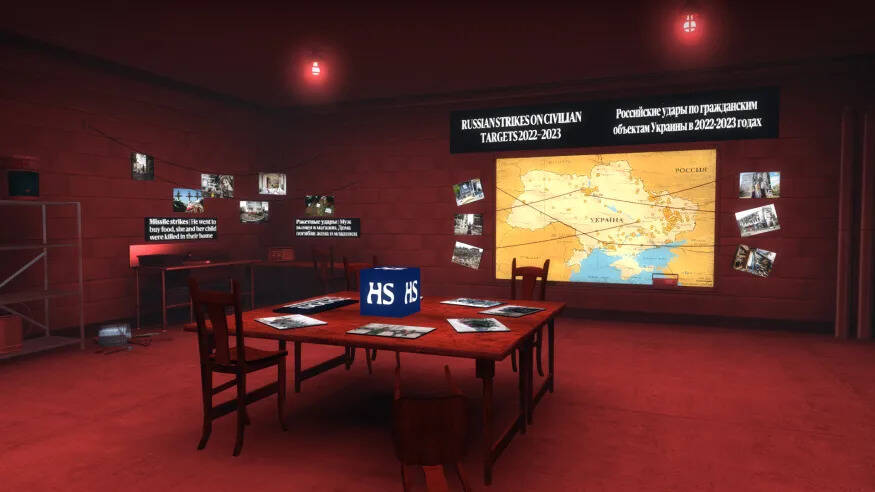by Ambra Visentin
The multiplayer game Counter-Strike Global Offensive (GO) has created the de_voyna map, which hides a secret room with information about Russia’s large-scale invasion of Ukraine. The new map appeared on the initiative of the Finnish newspaper Helsingin Sanomat. Developed in the United States, Counter Strike is not banned on Russian territory, unlike other services and platforms such as Instagram, Facebook and Twitter, as well as several Western media outlets. The game is extremely popular there, especially in St Petersburg and Moscow. It is played by around four million Russians, mostly young men.
The Finnish newspaper Helsingin Sanomat has found a way to spread information about the war through the popular video game. “The goal of the secret room was simple: to embed real-life war news into the game,” the newspaper reports. “Players can create custom maps that anyone can download and use. So we built a Slavic city called Wojna, which means war in Russian,” Antero Mukka, the paper’s editor-in-chief, told AFP.
In the basement of one of the city’s buildings, the newspaper’s computer technicians have hidden a room where players can find Russian-language reports written by the newspaper’s war correspondents in Ukraine. Some clues should help Russian players find the hidden room: It is located near a monument to the eternal flame (a burning car), a traditional custom commemorating the Second World War. At the entrance to the room is a map of Russian attacks on Ukrainian civilian targets. The next wall shows news footage of the Bucha massacre. Another section of the room is dedicated to Yuriy Glodan, an Odessa resident whose family was killed by rocket fire as he left his home to go shopping.
According to Moscow’s guidelines, from 24 February 2022 no news about a ‘war’ can be reported, only about a ‘special military operation’. On World Press Freedom Day, Wednesday 3 May, Reporters Without Borders published its press freedom ranking. “Crises, wars and the continuing spread of authoritarianism meant that the press freedom situation was more unstable last year than it has been for a long time,” the ranking states. Russia slipped nine places in the rankings and is now 164th in the world for press freedom. “Since the start of Russia’s war of aggression against Ukraine, almost all independent media have been banned, blocked and classified as so-called foreign agents.
Media professionals risk up to 15 years in prison for allegedly spreading false news about Russian forces. Around a thousand media professionals have left the country,’ says Reporters Without Borders on the press situation in Russia. To highlight this dramatic situation, the Helsingin Sanomat’s website features the faces and descriptions of a number of well-known Russian and foreign journalists and media professionals who have been forced to leave the country or are on trial in Russia for alleged ‘disinformation’, including Ilya Krasilshchik (Meduza), Evan Gershkovich (Wall Street Journal), Dmitry Kolezev (Republic) and Nastya Krasilnikova (Schoolgirls Podcast).
Cover image: Counter-Strike screenshot © Helsingin Sanomat /Valve
























